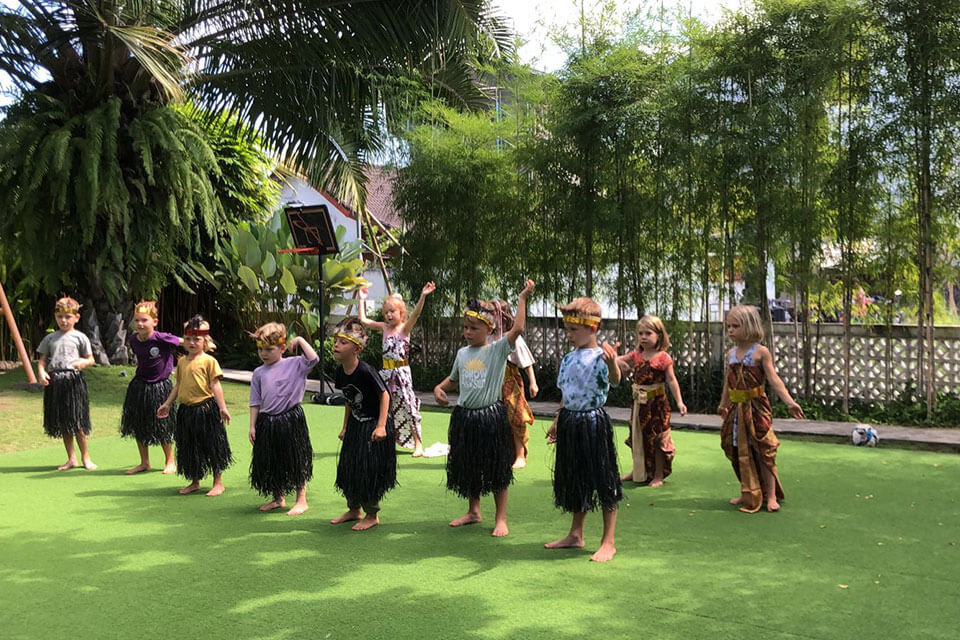
Outdoor learning, often known as “nature’s classroom,” offers an indispensable avenue for children to explore, grow, and learn. It forms the cradle where young minds awaken to the marvels of the world and the enchantment of nature.
Outdoor learning is a fantastic fusion of freedom and structure, encouraging children to explore, play, and develop skills and knowledge in a vibrant and natural setting. Let’s delve deeper into the importance and benefits of outdoor learning.
Learning and Growing in Nature’s Embrace
When children step outside the walls of a conventional classroom, they enter an arena of boundless opportunities. Their curiosity and energy, often confined within four walls, find a new outlet. Mountains become colossal classrooms, trees become intriguing storytellers, and breezes carry lessons about the world.
Children do not step outdoors thinking, “I’m going to learn something profound today.” Yet, the possibilities for growth and learning in the outdoors are as vast as the sky above them.
The environment that they find themselves in stirs their imagination. A tree branch can turn into a fantastical dragon, a pebble can become a precious jewel, and a simple game of catch can teach them about physics and geometry.
Building Independence and Confidence Through Outdoor Learning
This encourages children to come up with their own ideas and solutions to challenges. Whether it’s a tricky climb, a complex fort-building project, or simply understanding how to navigate their surroundings, these activity helps children develop problem-solving skills and independence.
This autonomy boosts their confidence, allowing them to make decisions, and learn from their mistakes, all in a natural and judgment-free setting. Through outdoor learning, they can try new things, stretch their abilities, and revel in the joy of achievement.
Fostering Physical and Emotional Health
As our world becomes increasingly digitized, children’s interactions with the natural world become more critical than ever. Regular outdoor activity and play can significantly enhance children’s physical health, reducing the risk of obesity and encouraging active, healthy lifestyles.
Furthermore, the freedom and serenity of the outdoors provide an excellent environment for fostering emotional well-being. Nature’s tranquility can lower stress levels and anxiety, help children relax and can have a therapeutic effect.
Enhancing Social Skills and Teamwork
Outdoor learning is also a natural platform for social interaction. Children learn to communicate, negotiate, cooperate, and share. Building a fort, for example, isn’t just about architectural creativity – it’s about teamwork, responsibility, and mutual respect.
Different Approaches to Outdoor Learning
Just as there are various styles of play-based learning, there are also different approaches to outdoor learning:
- Child-led Outdoor Learning: This form of learning is led by the child’s interests. It involves free exploration, with adults acting as facilitators rather than leaders.
- Guided Outdoor Learning: While the child still plays a major role in initiating activities, adults may step in to extend learning by asking questions, introducing new challenges, or showing new techniques.
- Adult-led Outdoor Learning: Adults guide the learning, organizing and directing activities that are open-ended and encourage exploration and thinking. Despite adult involvement, the focus remains on fostering a love for nature and the outdoors.
- Integrated Outdoor Learning: These activitiy is integrated into the traditional curriculum, using the outdoor environment to teach various subjects such as biology, geography, and physical education.
Outdoor learning philosophies vary, but they all emphasize the importance of hands-on experiences and a connection to nature.
Notable Philosophies Supporting Outdoor Learning
Forest Schools: This approach to outdoor learning originated in Scandinavia and encourages children to explore and learn from the natural world. The forest becomes a classroom where children develop confidence, social skills, and physical abilities.
- Adventure Education: Adventure education uses challenging outdoor activities to foster teamwork, problem-solving, and leadership skills.
- Place-based Education: This philosophy involves learning about local environments, cultures, and histories. It connects children to their community and the world beyond textbooks.
- Maria Montessori: Montessori education is known for its emphasis on learning through sensory experiences. It encourages children to interact with nature and learn through their senses.
Outdoor learning offers a vast array of benefits to children. It can be a source of joy, discovery, and learning, transforming the world into a playground of endless opportunities. So let’s let our children step outside, experience nature, and learn from the grandest teacher of all – life itself.
One example of the magic of outdoor learning is nestled in the beautiful island of Bali at the “Playschool at Parklife Bali”. This preschool has embraced the philosophy of learning in nature’s classroom, where the island’s lush green landscapes serve as the backdrop for children’s holistic development. With a combination of indoor and outdoor learning, Playschool at Parklife Bali, encourages young learners to expand their creativity, ignite their curiosity, and engage their inherent desire for exploration. As we delve into the manifold benefits of outdoor learning, let’s celebrate institutions like Parklife Bali. These pioneers are forging a future where children’s learning extends beyond four walls, out into the rich, vibrant, and boundless classroom of life itself.